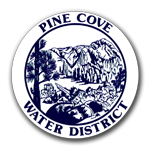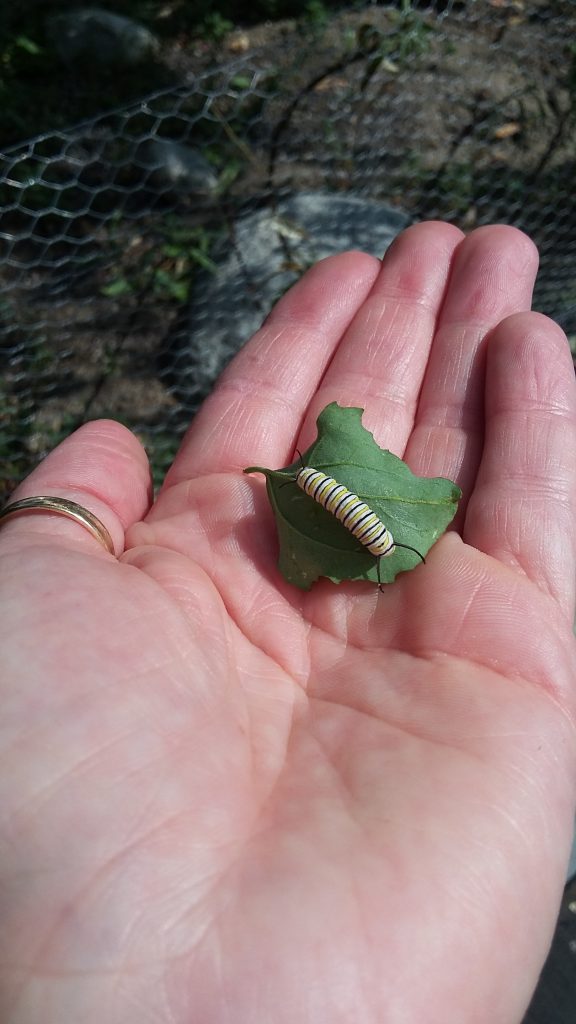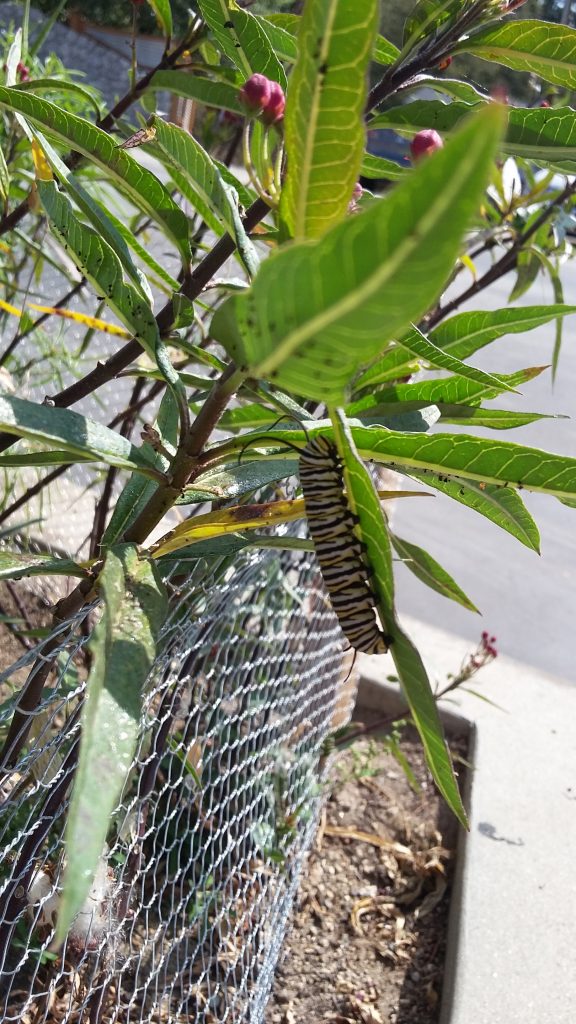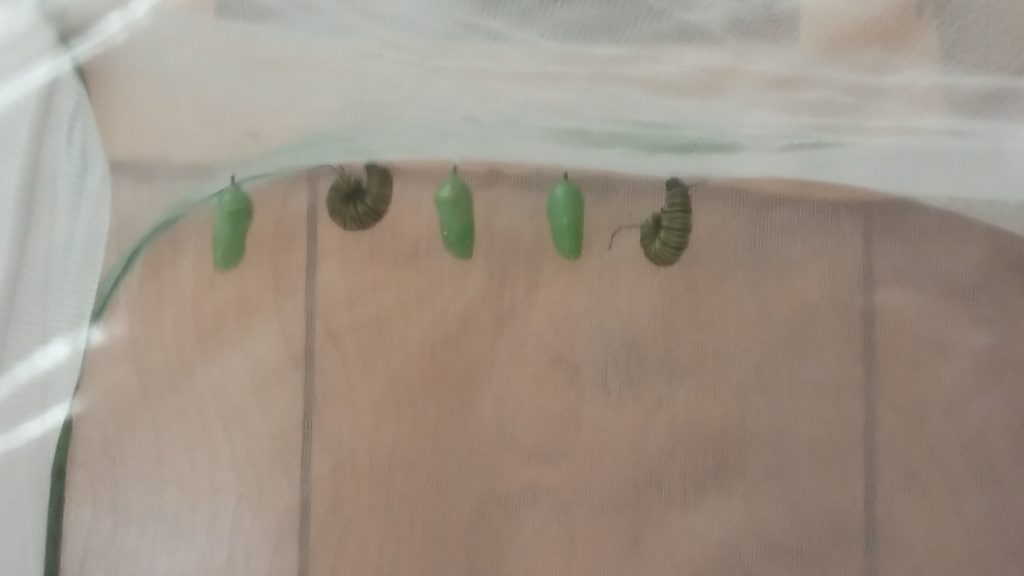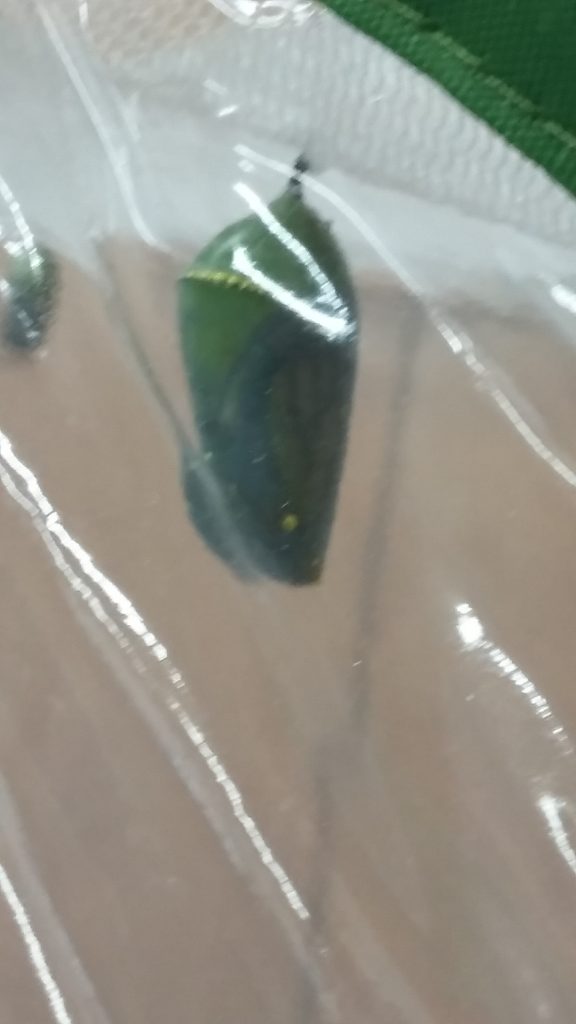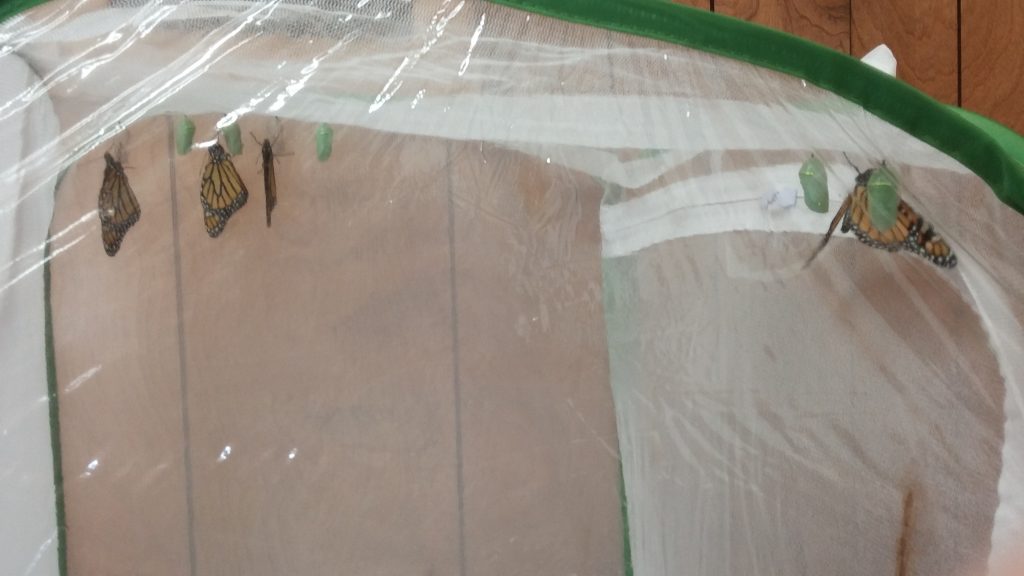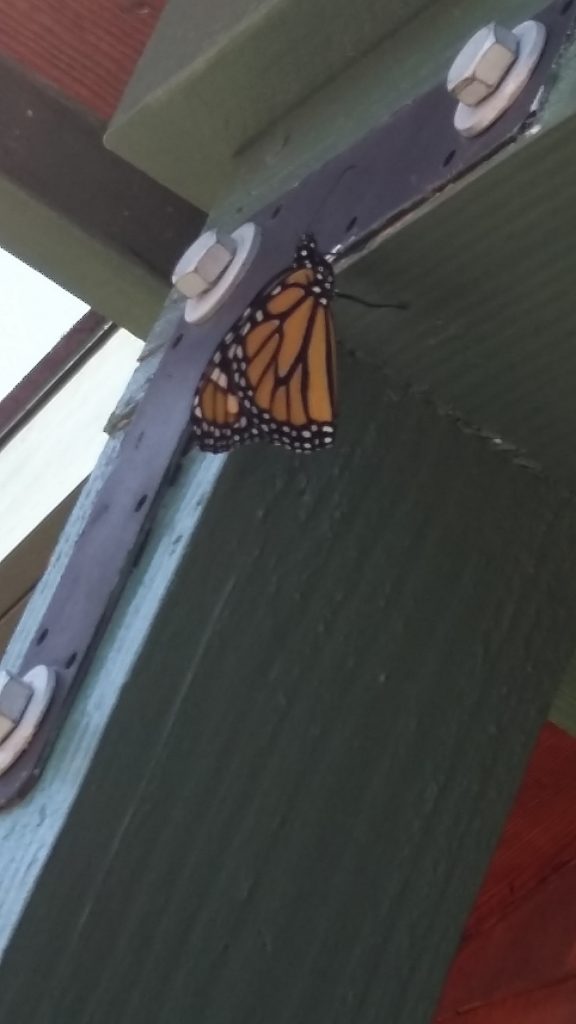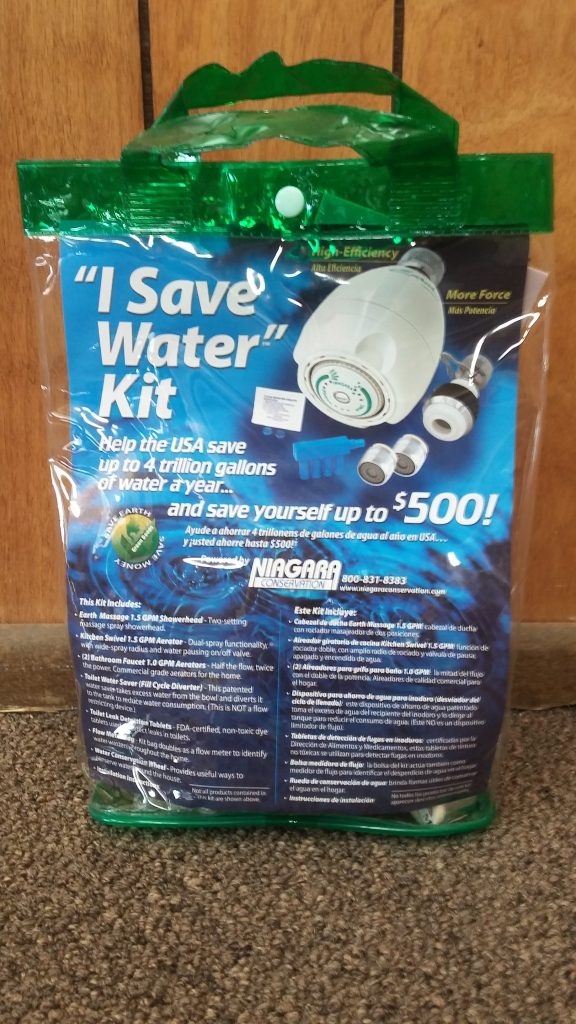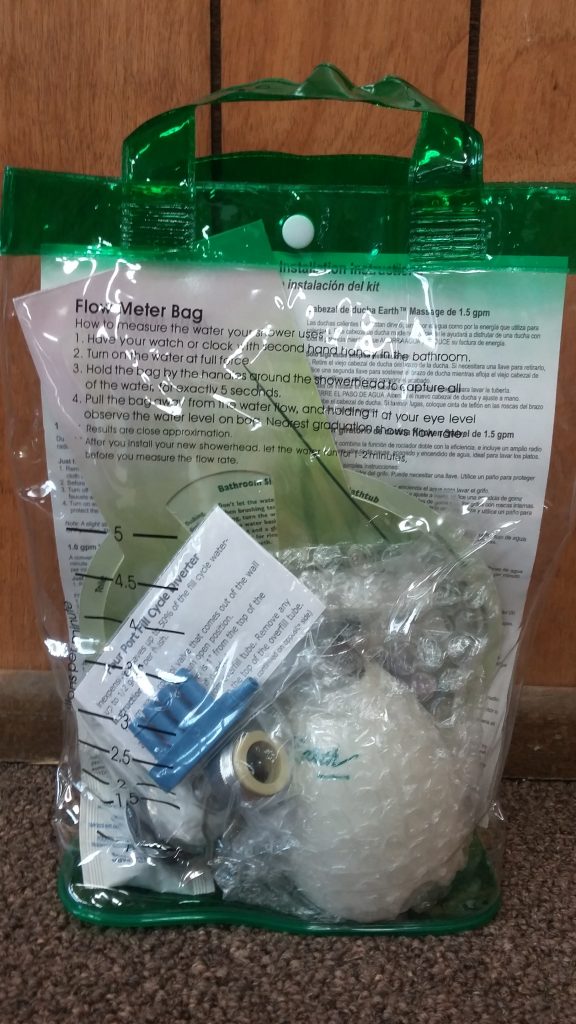Monarchs Part 2
We have had an exciting season of hatching monarch butterflies. We are proud to be certified and registered as an official Monarch Waystation through www.monarchwatch.org.
Our new sign reads: This site provides milkweeds, nectar sources, and shelter needed to sustain monarch butterflies as they migrate through North America.
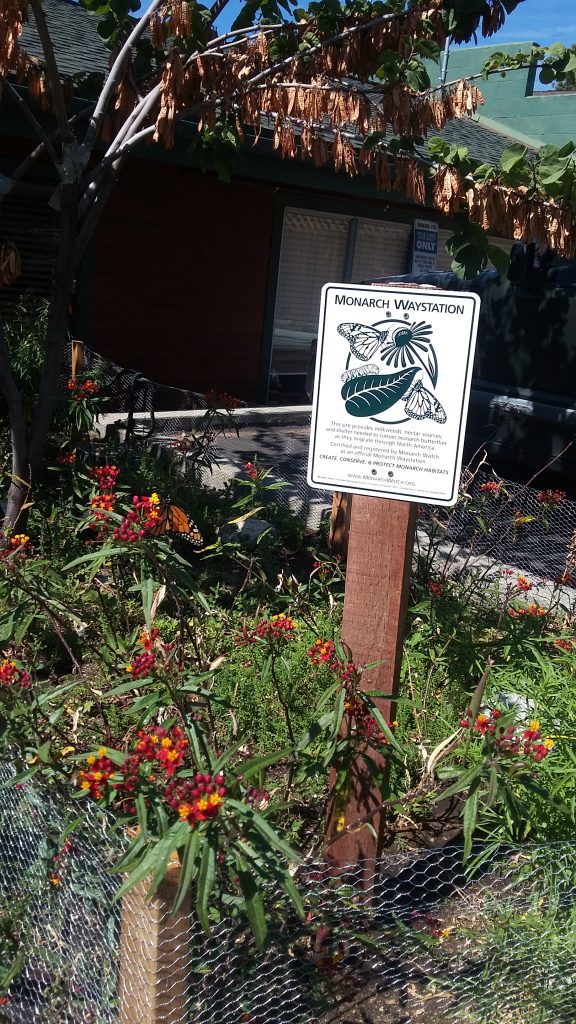
We really enjoy watching the process from egg to caterpillar to chrysalis to hatching. Over the last week, we have released almost 20 healthy monarch butterflies and we still have a baker’s dozen more chrysalis’. I hope you enjoy our pictures through this journey.
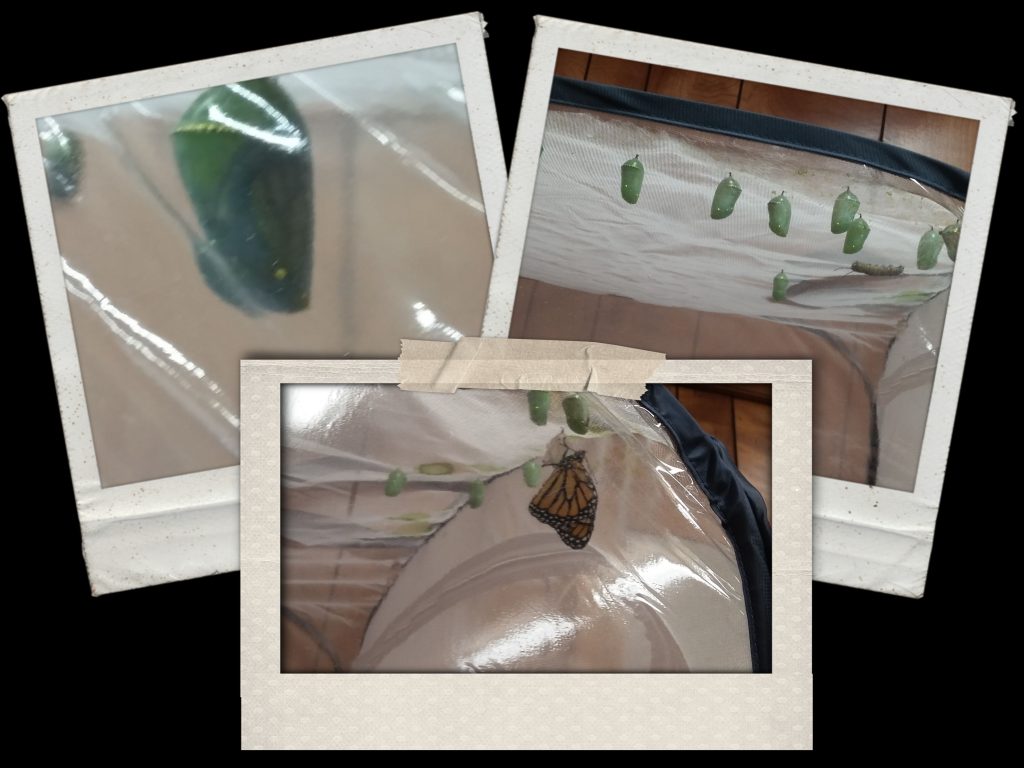
Click here to read a story about another beautiful soul trying to raise the population of monarch butterflies.
Want to help the monarch community? Keep your eyes out on our blog and newsletters for a fun give away coming up soon.
What’s the difference between a chrysalis and a cocoon?
The words cocoon and chrysalis are often used interchangibly when talking about monarchs and other butterflies. However, they are two completely different things! Cocoons are specific to moths, while chryslises are formed by butterflies. Moths spin silk around themselves and molt inside the silk casing. This provides extra warmth and protection from the surrounding environment. You can usually find cocoons attached to the side of something or burried under ground or in leaf litter.
Chrysalises, on the other hand, are not silk. Butterflies molt into a chrysalis, which is a hard exoskeleton covering that protects the developing butterfly beneath. Chrysalises are typically found hanging from something. For example, monarchs spin a small silk button to hang upside down from before molting from head to abdomen!
(information taken from Monarch Joint Venture)
Posted in: Animals, Garden, Monarch Butterflies, Pets and Animals, The Garden
Leave a Comment (0) →